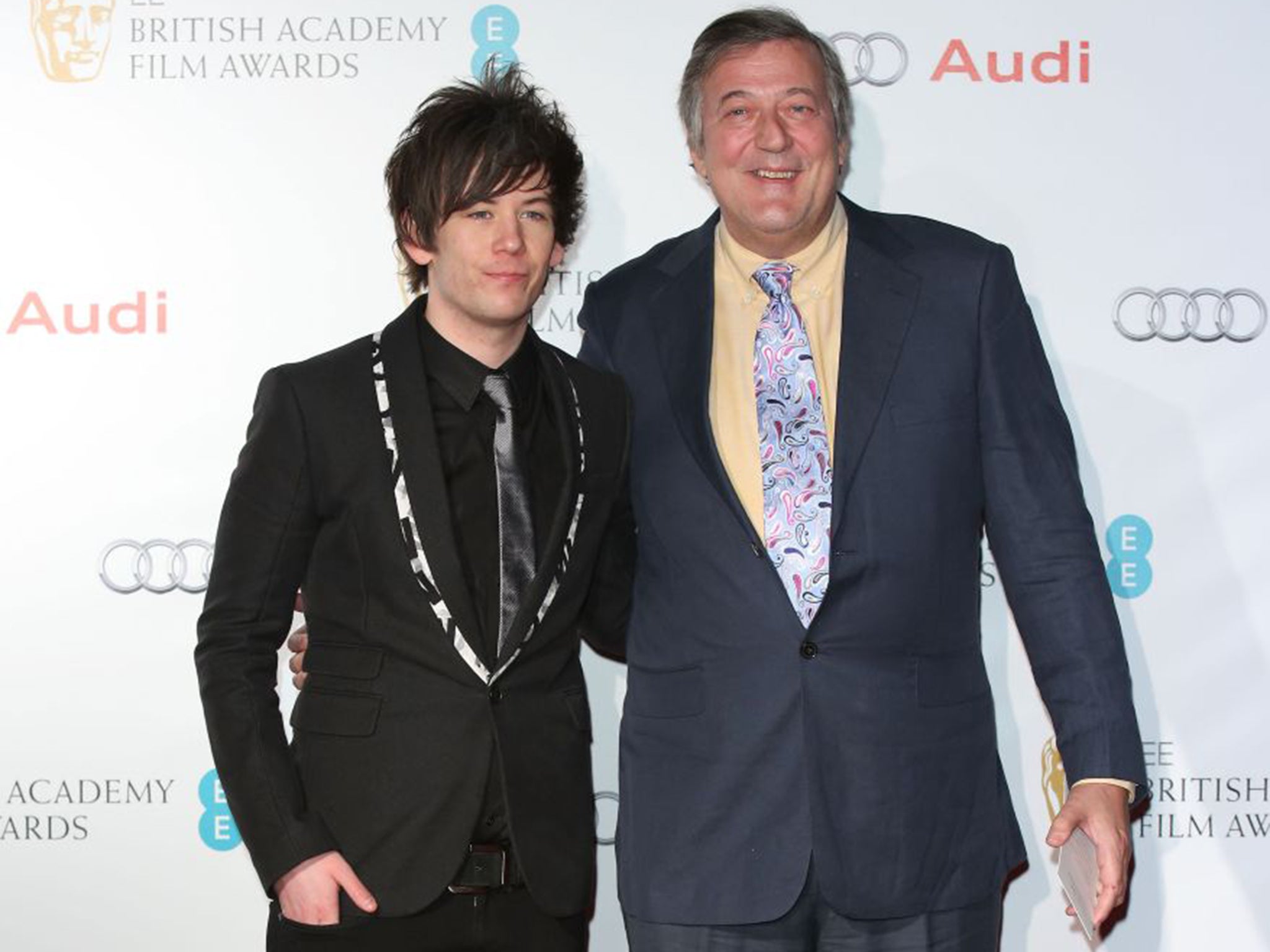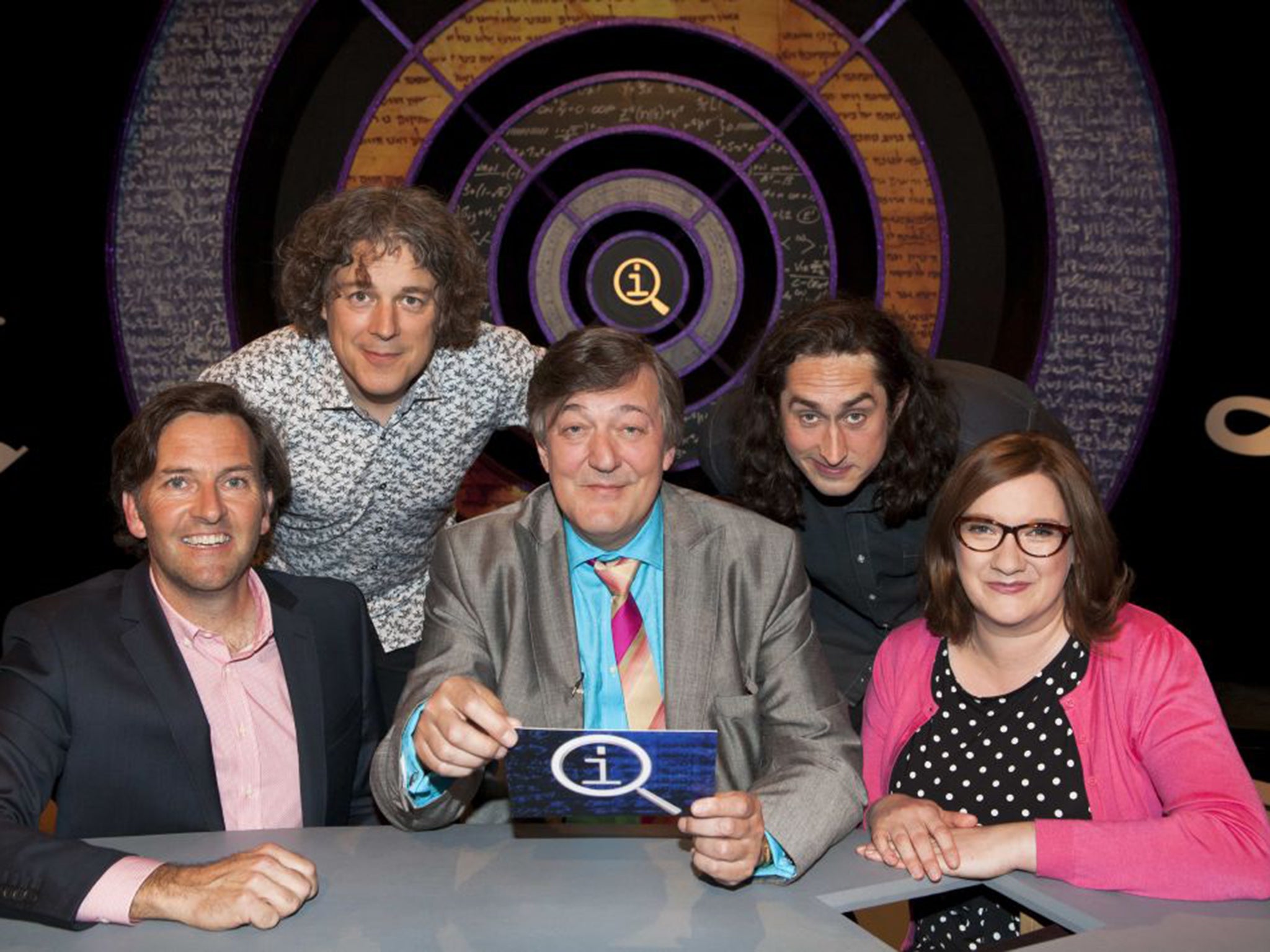A quarter of a century ago, it was alleged, a graffito appeared on the wall of a male urinal at the University of East Anglia begging the question “What is the difference between Malcolm Bradbury and God?” Professor Bradbury was at this time possibly the most celebrated literary critic in England, and a novelist, TV dramatist and all-round cultural eminence to boot. The answer to the question was “God is everywhere. Malcolm Bradbury is everywhere but here.” Those were the days, of course, in which arts section punditry counted for something and high-level polymathy still had its place. But if, 25 years later, you were going to award a prize for all-round cultural ubiquity, and in spheres of which Bradbury could only have dreamed, the short-list would carry only a single name.
The media’s obsession with Stephen Fry became so prodigious in the early part of the new year that I started keeping a note of the various activities that leached out into the public realm. First there was the news of his engagement to the 27-year-old stand-up comedian Elliott Spencer, followed, a few days later, by the news of his marriage. Then there was the story about Mr Spencer having to take a ticket for driving his partner at speed to last summer’s Hay Festival. Then there were his atheistical remarks to Gay Byrne on RTE, to be followed, only last week, by a minor row about his expletive-filled hosting of the Baftas. A public relations executive would have charged thousands of pounds to orchestrate this kind of coverage, but it is a mark of Mr Fry’s genius that his own serial exposures are entirely spontaneous.

It was the same over the Christmas period. One went to see the final part of The Hobbit and there he was paddling over a frozen lake in the guise of the Master of Laketown. One turned on BBC2 and there he was again on QI exchanging highbrow banter with his guests. One switched to Channel 4 and there he was once more telling an audience of admiring children about his drugs hell. The latter performance offered another mark of his genius, which is the high degree of licence he is allowed by the cultural arbiters of the day. Many a celebrity who decided to marry a man, or woman, 30 years his, or her, junior would be mildly ribbed. Not Mr Fry who, you imagine, could plight his troth to a centenarian or an 18-year-old without anyone turning a hair.
Exactly the same consideration applied to his impish use of the word “f***” at the Baftas, which attracted several hundred complaints from viewers, but was waived genially by most of the broadsheet reportage. And it could be seen in the fall-out from his interview with Gay Byrne, when his account of what he intended to say to the Almighty, should they encounter each other at the judgement seat, had several highly placed divines quaking in their galoshes and was rebutted by no less an authority than the former Archbishop of Canterbury.
It is quite an achievement. How does Mr Fry do it? And how does he do it without apparently seeming to try to do it? The answer is that, unusually for a modern-day celebrity, his appeal is entirely heterodox – cross-generational, cross-cultural and cross-gender. He has an amusing, avuncular side which appeals to the older viewer, but he also happens to be gay, which has finally become a point in one’s favour in the contemporary media world. He is, on the one hand, of the establishment (public school, Cambridge university, and apparently a source of great amusement to the late Queen Mother when introduced to her by Prince Charles), and on the other, slightly to one side of it, prone to make wounding remarks about God and homophobia and bigotry. There are not many people who could walk, unbuffeted, from Celebrity Mastermind to a party to the launch of his autobiography and thence to a Gay Pride march, but Mr Fry is one such.
And then there is that priceless part of his armoury, a resonant personal myth, in this case made up of the delinquent adolescent’s credit card spree followed by redemption and an apprenticeship among cart-loads of people who went on to be famous, if not quite as famous as Mr Fry himself. All this has had the invaluable professional effect of investing him with enticing yet contradictory qualities that most people in his position struggle to acquire: seriousness and levity, edginess and mainstream appeal; the PG certificate and the sweary emceeing; and allowing him to devise a persona that allows him to get away with practically anything. I once watched him present the prizes at my sons’ school, when he told the following joke to an audience of 10-year-old boys and their parents: “What is the definition of a King’s Lynn virgin? Answer: a girl beneath the age of 12 who can run faster than her brothers.” Dear me, how we all laughed.

The marvel of this amiable saunter from talk-show to talk-show and from wide-screen to small, is its catholicity. We live, after all, in an age of cultural fragmentation, an era of contending cultural constituencies, when a top-rated television drama such as Broadchurch attracts a bare 9 million viewers, popular music is endlessly dispersed among a range of disconnected tribes, and the two leading political parties, who once attracted 95 per cent of the vote at general elections, are struggling to achieve two-thirds of that. Naturally, the consequences of this kind of atomisation are what might be called culture by particle, and the complaint of the middle-aged man – myself, say, reading the magazines in the barber’s shop – that he has heard of Victoria and Katie but who exactly are Chantelle and Gemma?
The same distinctions apply to what used, in the old Leavisite days of continuous aesthetic judgment, to be called high culture, in which, bewildered by the sheer variety of material out there, people can read certain kinds of books while blind to the fact that certain other kinds even exist and with no F R Leavis, or indeed anyone else, to rebuke them. In this atmosphere, Mr Fry – ubiquitous (although taking a break from Twitter, he says) and omni-competent – is a deeply reassuring figure. So much of what he does is potentially trivial, and yet the braininess he brings to it invariably absolves it from the charge of light-mindedness. A final mark of his achievement, perhaps, is that the only person who gets remotely close to him in the all-round cultural signifier stakes is Russell Brand – and Mr Brand, alas, is but a house sparrow when compared to the eagle gliding majestically off to host the latest set of film awards.

Curiously enough, the only Fry detractor I ever turned up was my father, who, on being introduced to his parents back in the 1990s, remarked, with maximum irony, “Oh yes, the young man who is so amusing on the television”. The reason for this dislike was Blackadder, of which, detecting a humour that relied on social and intellectual division to bring off its effects, he remarked “college kids, isn’t it?” But Mr Fry isn’t in the least divisive. In fact his is an almost transcendental presence on our cultural scene, someone who seems to be able to unite its disparate elements in a manner previously thought to be extinct.
It would be horribly ungenerous to say that his ubiquity is actually a result of our deep cultural unease and uncertainty and a need for reassurance when ancient citadels seem to be tumbling down. After all, it is not his fault that people like him.


Join our commenting forum
Join thought-provoking conversations, follow other Independent readers and see their replies